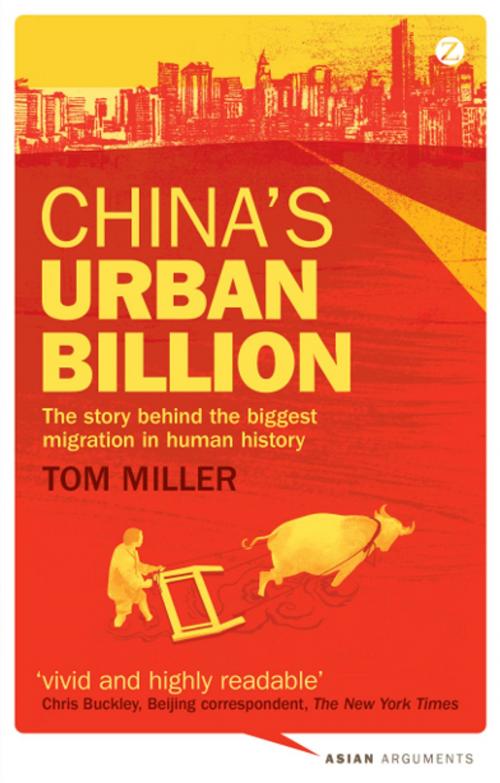China's Urban Billion
The Story behind the Biggest Migration in Human History
Nonfiction, Social & Cultural Studies, Social Science, Sociology, Urban, Science & Nature, Science, Political Science| Author: | Tom Miller | ISBN: | 9781780321448 |
| Publisher: | Zed Books | Publication: | November 22, 2012 |
| Imprint: | Zed Books | Language: | English |
| Author: | Tom Miller |
| ISBN: | 9781780321448 |
| Publisher: | Zed Books |
| Publication: | November 22, 2012 |
| Imprint: | Zed Books |
| Language: | English |
By 2030, China's cities will be home to 1 billion people - one in every eight people on earth. What kind of lives will China's urban billion lead? And what will China's cities be like? Over the past thirty years, China's urban population expanded by 500 million people, and is on track to swell by a further 300 million by 2030. Hundreds of millions of these new urban residents are rural migrants, who lead second-class lives without access to urban benefits. Even those lucky citizens who live in modern tower blocks must put up with clogged roads, polluted skies and cityscapes of unremitting ugliness. The rapid expansion of urban China is astonishing, but new policies are urgently needed to create healthier cities. Combining on-the-ground reportage and up-to-date research, this pivotal book explains why China has failed to reap many of the economic and social benefits of urbanization, and suggests how these problems can be resolved. If its leaders get urbanization right, China will surpass the United States and cement its position as the world's largest economy. But if they get it wrong, China could spend the next twenty years languishing in middle-income torpor, its cities pockmarked by giant slums.
By 2030, China's cities will be home to 1 billion people - one in every eight people on earth. What kind of lives will China's urban billion lead? And what will China's cities be like? Over the past thirty years, China's urban population expanded by 500 million people, and is on track to swell by a further 300 million by 2030. Hundreds of millions of these new urban residents are rural migrants, who lead second-class lives without access to urban benefits. Even those lucky citizens who live in modern tower blocks must put up with clogged roads, polluted skies and cityscapes of unremitting ugliness. The rapid expansion of urban China is astonishing, but new policies are urgently needed to create healthier cities. Combining on-the-ground reportage and up-to-date research, this pivotal book explains why China has failed to reap many of the economic and social benefits of urbanization, and suggests how these problems can be resolved. If its leaders get urbanization right, China will surpass the United States and cement its position as the world's largest economy. But if they get it wrong, China could spend the next twenty years languishing in middle-income torpor, its cities pockmarked by giant slums.















